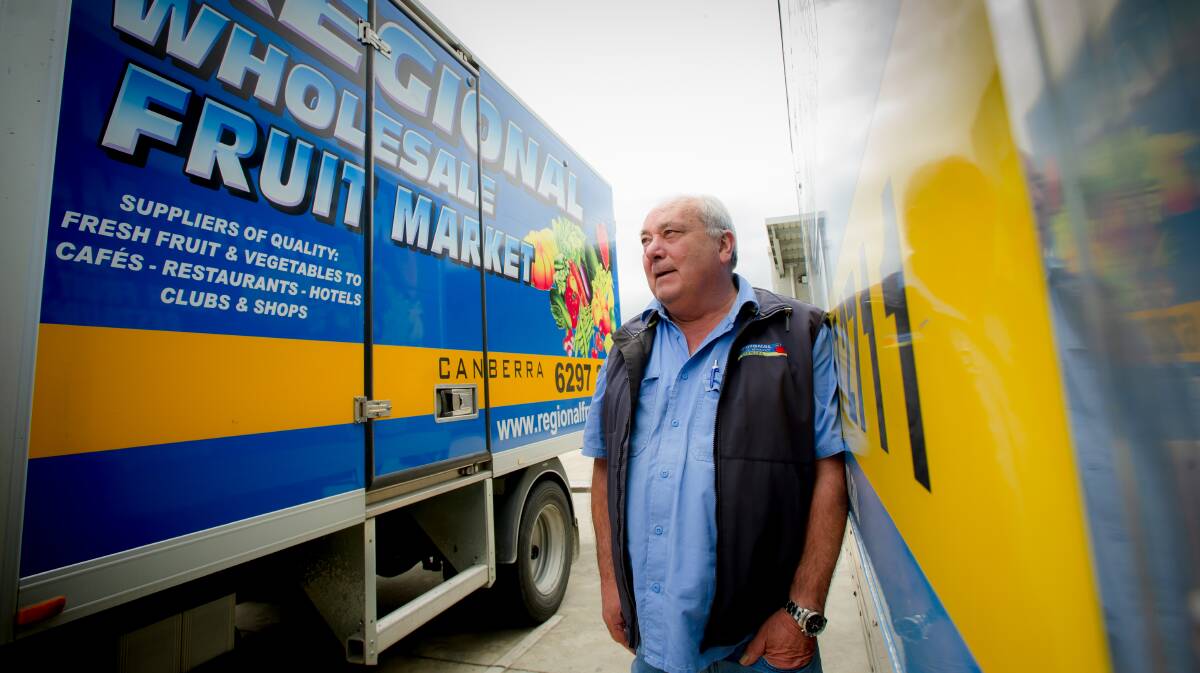
Canberra businesses are struggling to keep goods flowing as the supply chain crisis continues to bite. They are adapting and changing routes in the face of staff shortages.
Some stores say shelves are still at 80 per cent of their usual capacity because of continuing shortages of chicken.
Workers are under pressure, according to one of the big unions involved in the distribution networks. Truck drivers have been asked to return to work while still COVID-positive, the Transport Workers Union said.
But the union's Canberra leadership praised a more pragmatic approach from the ACT government which was discussing widely with both companies and the union on how to get workers back to work.
The overall picture is of an ACT economy trying to adapt in the face of multiple difficulties in a tight web of relationships.
"We are able to pivot. We can change supplier and transport company and that gets us across the line," Jim Stamatis who owns the Regional Wholesale Fruit depot just inside the ACT, near Queanbeyan, said.
The real cost comes from the shortage of workers in distant fields and orchards.
In normal times, teams of pickers migrate up and down the country as different fruits come into season. These itinerant pickers are usually paid by the ton whereas local workers are paid by the hour. It means that the incomers are cheaper - but not currently available in sufficient numbers.
"There are plenty of oranges on the trees but none of these usual seasonal workers, so it costs more for a kilo," Mr Stamatis said.

Canberra has a strong asset, he said: it is between Sydney and Melbourne so ACT distributors can switch suppliers and transport companies more easily.
He appealed to Canberrans to stick with local businesses through tough times: "What is really important is to keep supporting local suppliers here in Canberra, support not just from customers and other businesses but from the government, too."
Rising prices and continuing space on shelves are the two sides of the current demand and supply imbalance.
"There are certain things we are struggling with like poultry and meat," Frank Pelle, manager of Lyneham IGA, said. "But it's getting better."
Workers were reporting for work across the ACT but some said they were more anxious now with the Omicron variant than they were with Delta last year.
"It's scary," delivery driver and supermarket worker Nabin Adhikari said.
"Drivers are anxious. Everything has changed because the COVID numbers are sky-rocketing. There's a lot of infection going on."
Nationally, the Transport Workers Union said that some logistics people were being pressured to return to work too early after catching COVID: There were "alarming safety violations" in a "blatant prioritisation of profits over safety".
But local official Klaus Pinkas said the ACT Government was being more sensible than the federal government by realising that there were pitfalls if recently infected workers were just pushed back to work. There should be a conversation, involving the worker and his or her colleagues.







